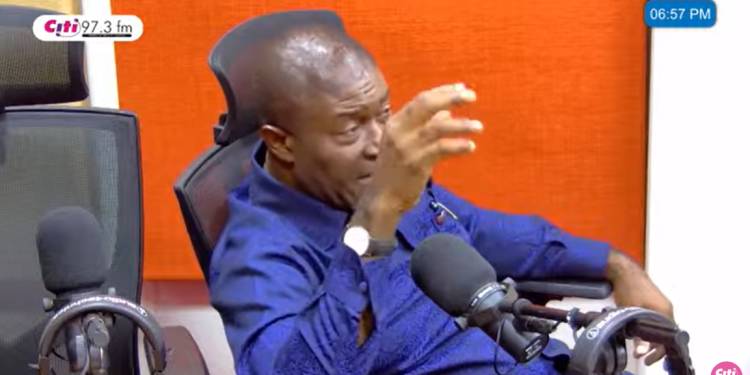The New Patriotic Party (NPP) is grappling with a significant voter turnout crisis, as Vice Chairman of the 'Bawumia 2024 Campaign Team,' Nana Akomea, has revealed that around two million of the party's supporters failed to cast their votes in the December 7 general elections. The low turnout is being seen as a major contributor to the NPP's defeat, which saw the National Democratic Congress (NDC) return to power with John Dramani Mahama as President-elect.
Mahama secured over 6.3 million votes, comfortably surpassing Dr. Mahamudu Bawumia of the NPP, who managed only 4.6 million votes. The NDC also reclaimed a parliamentary majority, unseating numerous NPP Members of Parliament and solidifying its dominance in the legislature. The election marked a sharp reversal for the NPP, which had enjoyed significant support in the 2020 elections, where it garnered approximately 6.7 million votes.
Voter Apathy and Its Impact
Speaking during an interview on Citi FM’s Point Blank segment on Eyewitness News, Akomea highlighted the stark contrast between the NPP’s voter turnout in 2020 and 2024. He noted that the absence of two million voters who had supported the party in 2020 was a glaring issue in the election's aftermath.
“What conclusion we can come to at this moment is to look at the results. The results clearly show that about two million people who voted for NPP in the 2020 elections did not vote for NPP in 2024. The NDC got about 6.2 million in 2020 and 6.3 million in 2024, so it is reasonable to assume that their supporters turned up and even gained an additional 100,000 or so.
"Our votes reduced from 6.7 million in 2020 to 4.6 million in 2024. Those two million people, we don’t find them anywhere. We don’t find them voting for Mahama, and we don’t find them voting for Alan Kyerematen. It is fair to assume that they stayed away,†Akomea said.
A Call for Introspection
Akomea stressed the urgent need for the NPP to investigate the reasons behind the voter apathy that contributed to its defeat. He suggested that identifying the root causes of this phenomenon would be crucial to rebuilding the party's base and ensuring its future electoral competitiveness.
“What we need to do is to find out the reasons—some of the key reasons—that made them stay away because they didn’t even go to the polls to vote for the party. This is something we must address with urgency,†Akomea emphasized.
This call for introspection comes amid internal party debates over the effectiveness of its campaign strategies, the selection of Dr. Mahamudu Bawumia as its flagbearer, and the challenges of retaining voter enthusiasm after eight years in power.
Challenges and Theories
Political analysts have suggested several factors that may have contributed to the NPP’s voter apathy, including dissatisfaction with the government’s handling of the economy, allegations of corruption, and a perception that the party had grown out of touch with the needs of ordinary Ghanaians.
Others have pointed to the fractious nature of the party’s internal politics in the run-up to the elections, particularly the fallout from the resignation of Alan Kyerematen, a former Trade Minister and leading figure within the NPP. Kyerematen’s decision to run as an independent candidate may have splintered the party's base, though his performance in the election was not strong enough to explain the missing two million voters.
Lessons for the Future
The NPP’s poor showing in the 2024 elections has underscored the importance of maintaining a strong and united voter base. Analysts believe the party must engage in a comprehensive review of its policies, leadership, and communication strategies to rebuild trust and enthusiasm among its supporters.
Akomea’s remarks also highlight the broader challenge of voter apathy in Ghanaian politics, where many citizens feel disillusioned with the promises of political parties. For the NPP, addressing these challenges will require more than just internal reforms—it will necessitate a genuine commitment to addressing the economic and social issues that matter most to the electorate.
The Road Ahead
As the NPP reflects on its electoral defeat, the party’s leadership faces a critical task: understanding the factors that drove two million voters to stay home and developing strategies to win back their trust. While the immediate aftermath of the election may be painful, it also provides an opportunity for renewal and growth.
The 2024 elections have demonstrated that the electorate is willing to hold parties accountable for their performance, and any attempts to regain their support must be rooted in authenticity and a clear vision for the future. Whether the NPP can rise to this challenge remains to be seen, but the stakes for its survival as a political force in Ghana could not be higher.
As Akomea aptly put it, “We must listen to the people, understand their concerns, and respond with action—not just words.†The NPP’s ability to heed this advice may determine its political fortunes in the years to come.




No comments yet
Be the first to share your thoughts!